If there is anything that LGTBQ+ legacy can teach you, it is that the status quo will not change unless you are willing to confront it. That’s why I asked a selection of strong community leaders who I look up to for the things they have done all over the country – and specifically in the DMV area – to have an honest chat with me about the state of Pride in honor of the 50th anniversary of Stonewall. Being a DC Beings Ambassador has been a wonderful opportunity and it’s really amazing that we have this time and space to have this conversation.
Today’s conversation will really focus a lot on what it means to be LGBTQ+ and non-binary, being black and brown, the intersections of what that looks like and means for us, conversations around gender assault and sex violence.
The Panelists
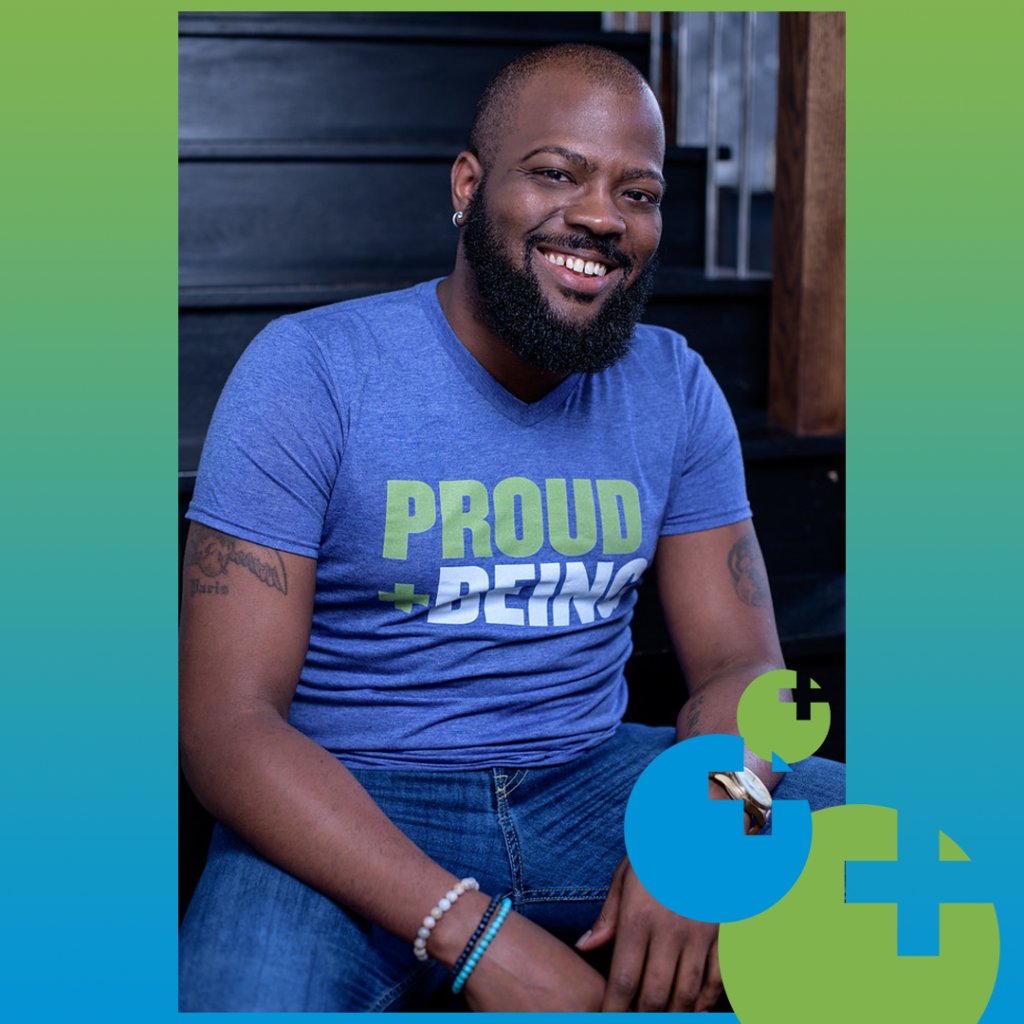
Preston: My pronouns are he and him. I really want you all just to be as energetic as you always are and usually are. This is going to be an informal conversation, a time to have a great education opportunity and learning experience. And so I want you to introduce yourselves. Tell people your name, pronouns, where your from, the work that you do. And I would like to start with you Alicia.
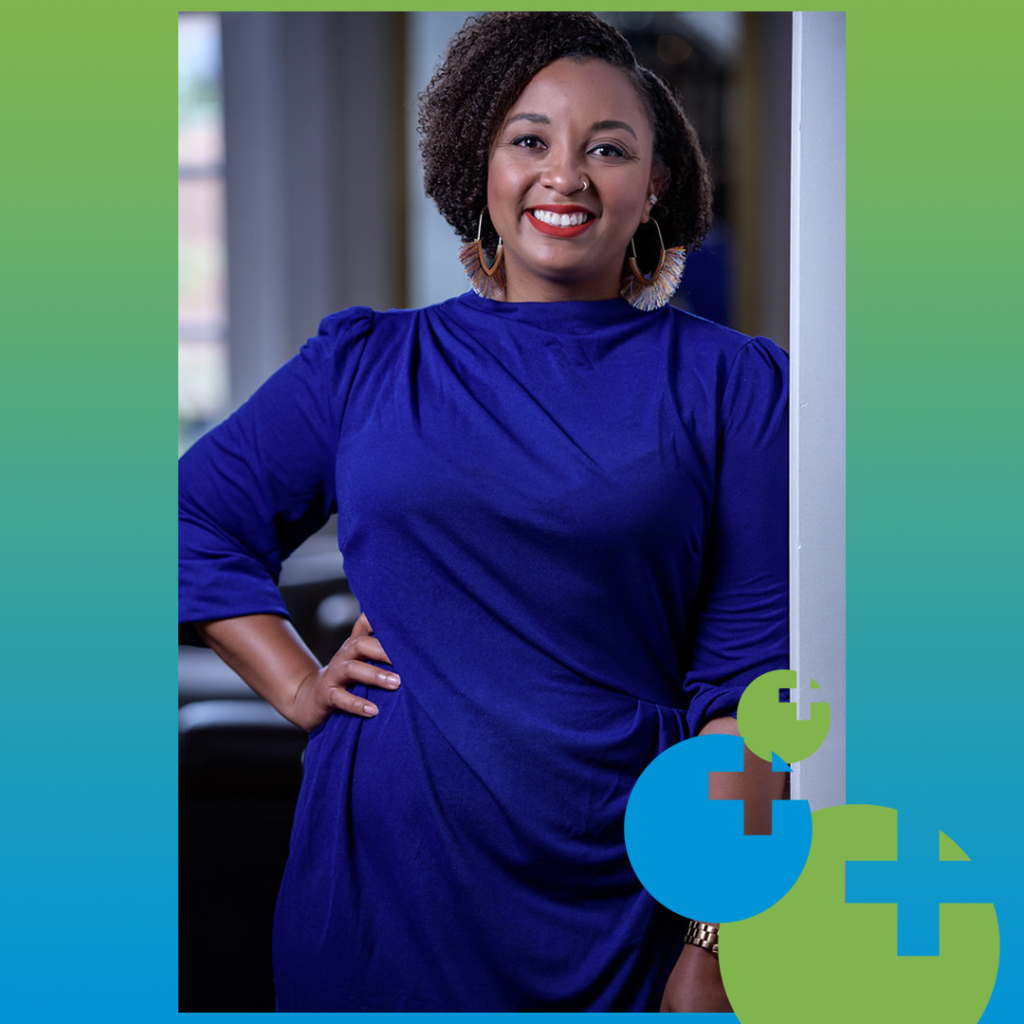
Alicia: My name is Alicia Sanchez-Gill. I’m a queer fem Afro-Latinx survivor of child sexual abuse. I’m also the executive director of Collective Action for Safe Spaces here in Washington, D.C.
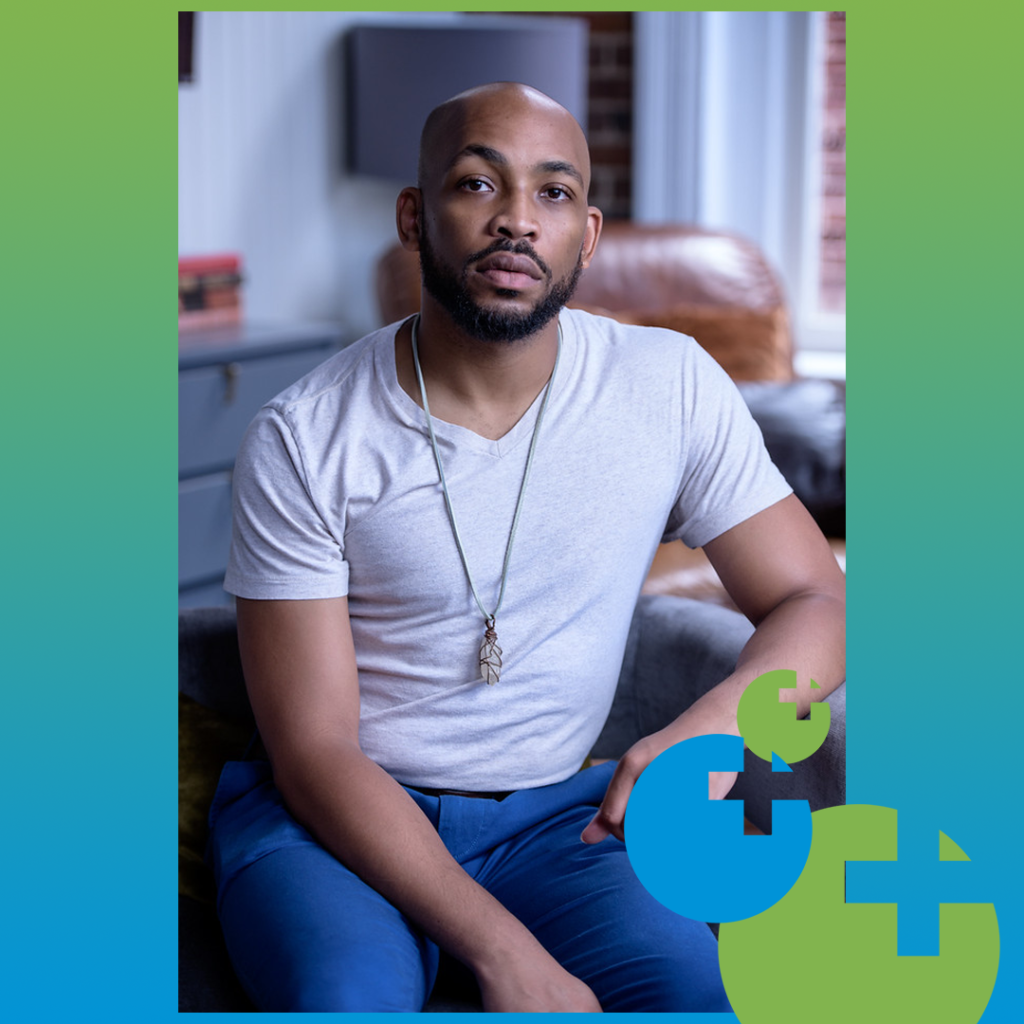
Dana: I’m Dana White. My pronouns are they and them. I identify as queer and non-binary. I am of Puerto Rican descent and I’m currently the program manager at SMYAL here in D.C.
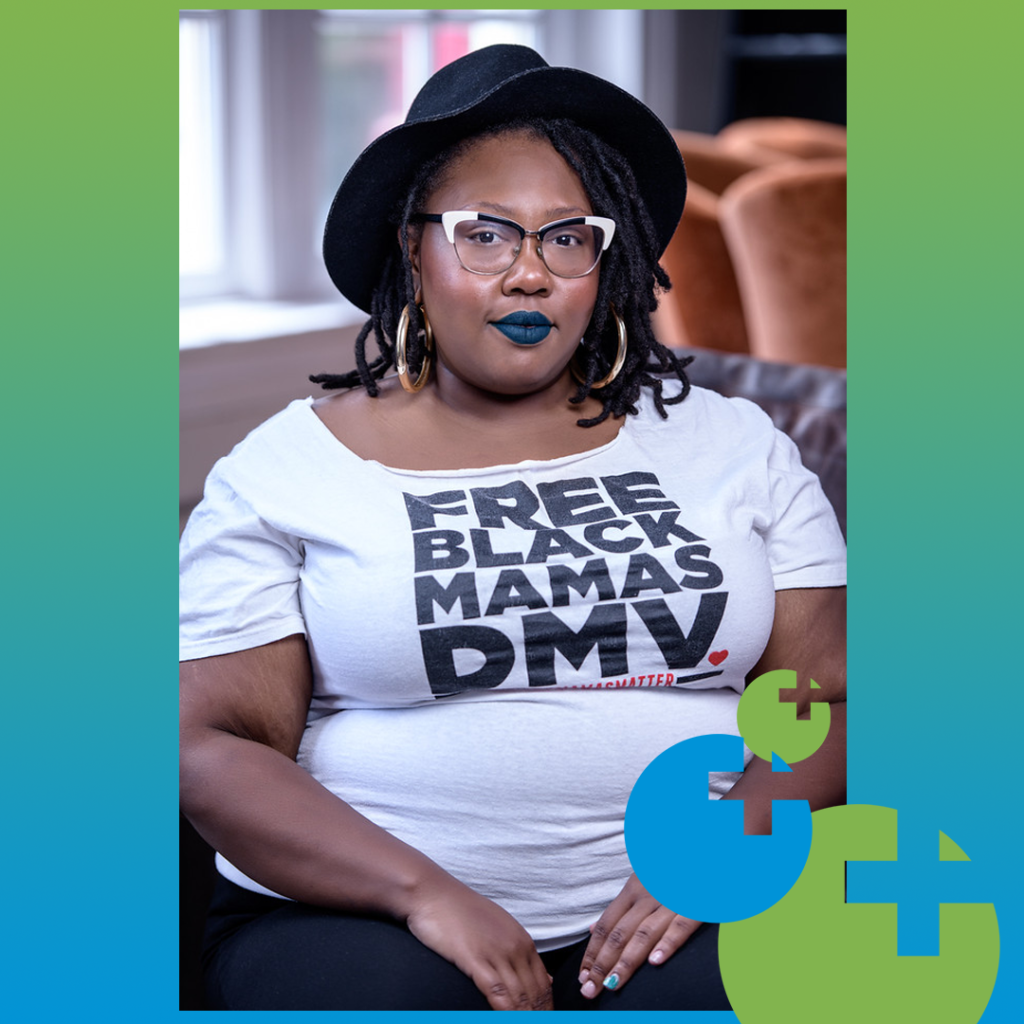
Samantha: Hi my name is Samantha Master. Pronouns are her/she like the chocolate. PG county here to HoCo represented. I am the Co-lead of Free Black Mamas DMV and a longtime creator and organizer around queer gender and productive justice.
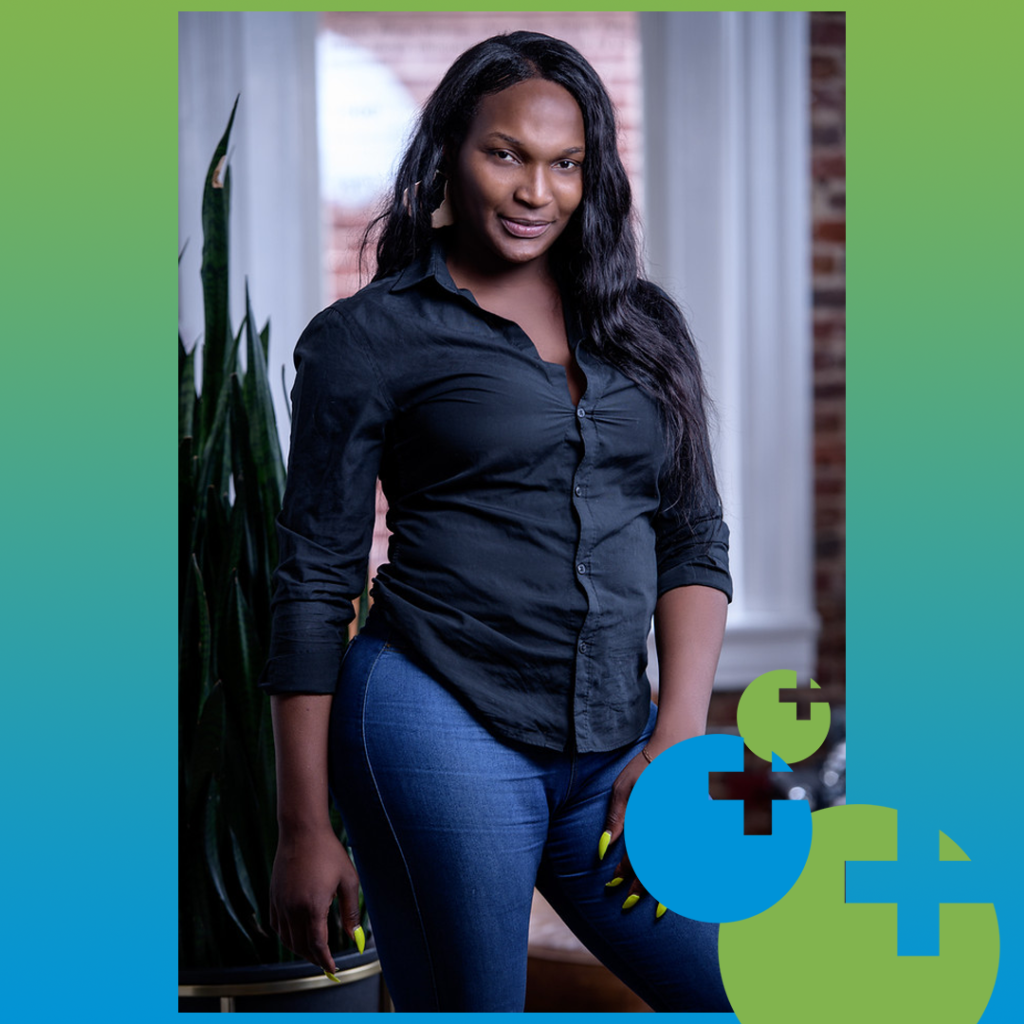
Porsha: My name is Porsha Burton, Philadelphia native. Pronouns; she, her, and hers. I’m a community health worker. I love my work. It is what drives me to wake up in the morning.
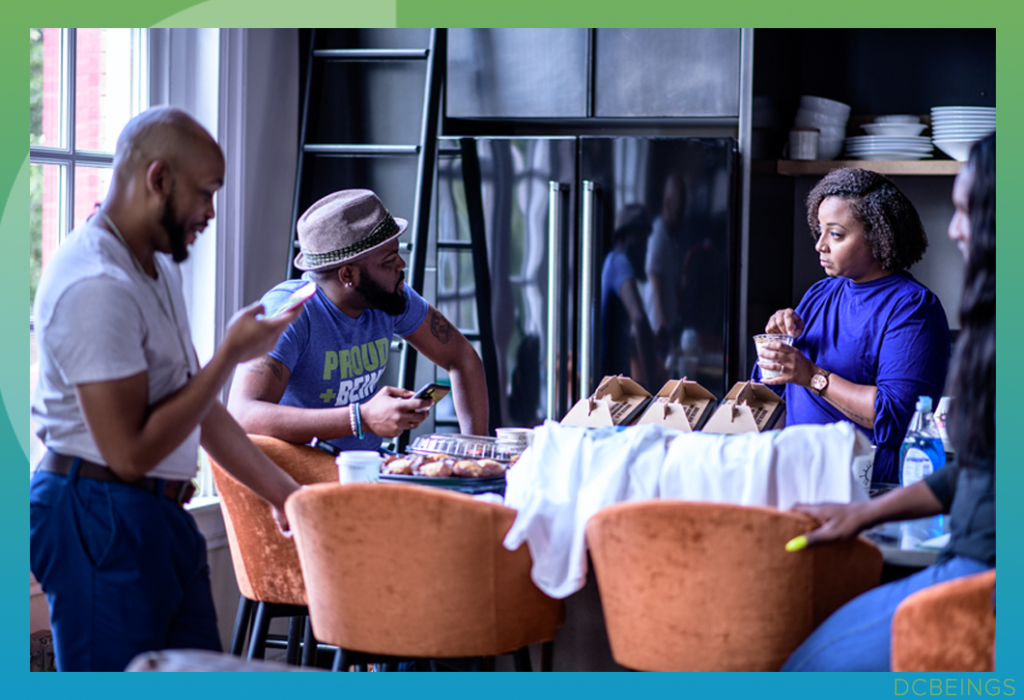
Preston: I’m really excited. I’m standing in greatness. Let me just say that. All of you are contributing great things individually and collectively. And I think that’s really how we all get free. And so I’m really excited for this conversation too. The first question I’ll have for you all is, on the work that we do around advocacy, grass roots organizing, sometimes grass tops organizing, and policy-related work. What is the role of activism in an activist? How do you seed yourselves in this role, in the space as activist? And what role does activism even have in our movement?
Porsha: Well for me, being an activist is standing up for people that don’t have a voice or feel like they don’t have a voice. Because, everyone does initially have a voice. Asking the tough questions and waiting for your answer. A lot of times we ask these tough questions, and we let the answer linger. I need to know the answer, so I can deliver the answer to the people that need it the most. So, sticking up for people trying to open up doors and being a nuisance to me is what being an activist and an advocate is.
Samantha: I’m going to put professional nuisance on my bio.
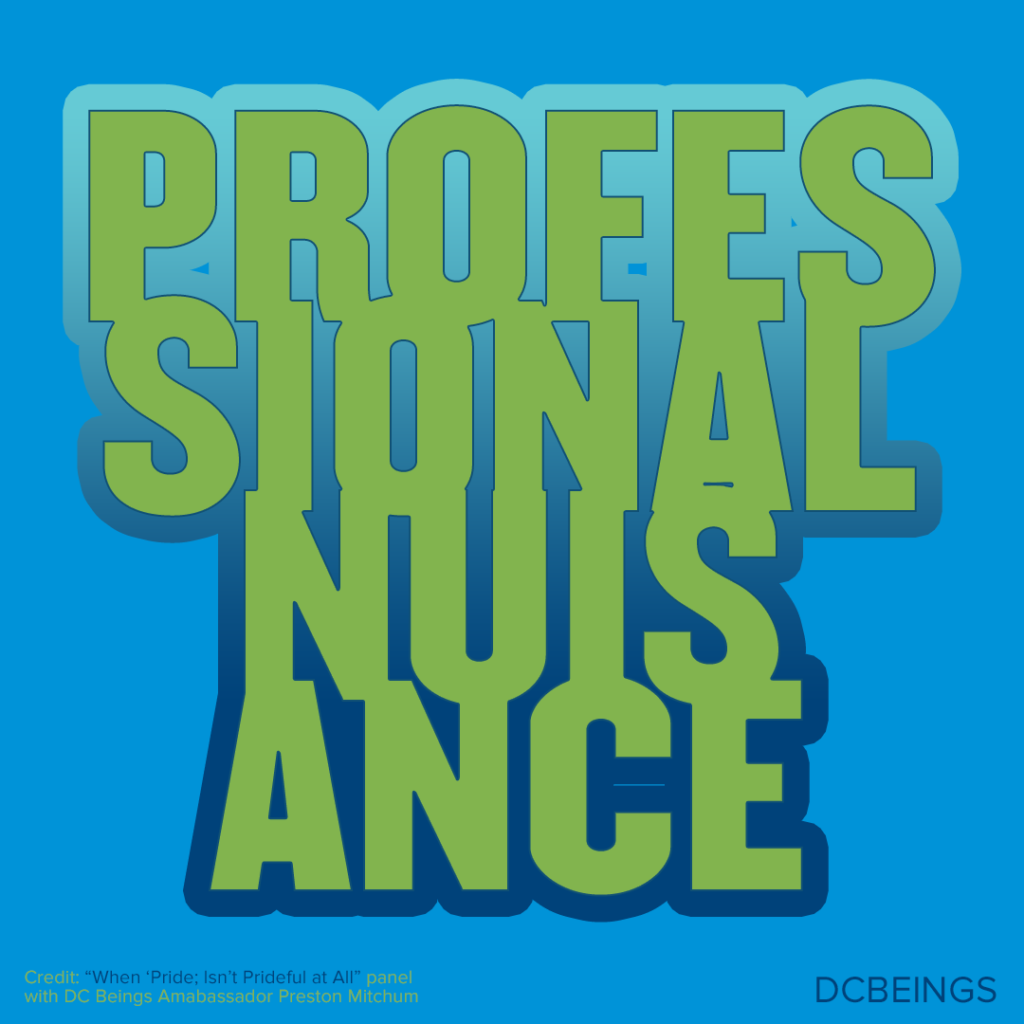
Alicia: Yeah. Professional nuisance. I love that. I just want to key back on this idea of being a nuisance. I think so often when we’re, some of us have worked in both grassroots organizing and also policy. Whether that’s local city policy or legislative advocacy at the federal level. Sometimes, because the way that our topics are set up, kind of the way the system works. We can’t actually advocate. Sometimes, it can be really hard to advocate for the full and broad range of need that people have. Because sometimes in non-profits we think really immediate or maybe play it small. And I think that the role of activism and organizing is to think bigger, and to be imaginative, and to vision a world that doesn’t exist yet. Instead of trying to play within the current structures that already exist. So, I Just have a lot of gratitude to the folks that came before us. To the ancestral, the sea of queer and trans folks that paved the way for my existence right now. Because, they imagined a world where I could be a little bit safer, right. And we know that safety, we’re not safe. Right? And we know particularly thinking about all the trans women, 11 trans women who have been murdered just this year. Who are all black women, black trans women. So I think its really important to say their names and lift them into the space, because I know that our work is not done. But, I think that what organizing and activism on the ground looks like is bring everybody along and pushing policies that may otherwise not get heard. Because the folks on the ground know deeply what the needs are for those communities. Yeah.
Samantha: I love that. I mean, I don’t think I could have said it any better. But, I think that the role of activism is to really re-imagine what power looks like. A power that is more just, more collective, more people centered, and at that imaginative edge of what is possible in this current world and also what is possible in the world for our children’s, children, Children’s, children. And so the role of activist is really a role of leadership of helping to mobilize and having supporting people in really imagining innovative ways that power can be shifted towards the larger and more collective good. For those at the margins and really being responsible for helping to push those ideas and that work forward. And there’s so many forms of activism. Right? Its not just being at your legislators office. It is the work of cultural organizers, which we have this long beautiful queer/trans history of. It’s the work of mobilizing, kitchen counter conversations, the kitchen table conversations, it’s the work of building institutions. Right? We talk a lot about the harm that black churches have done. But, one of the things that they represent is some of the longest lasting black institutions in America. So, all of those are different forms of activism and advocacy we can pull from our ancestral legacy.
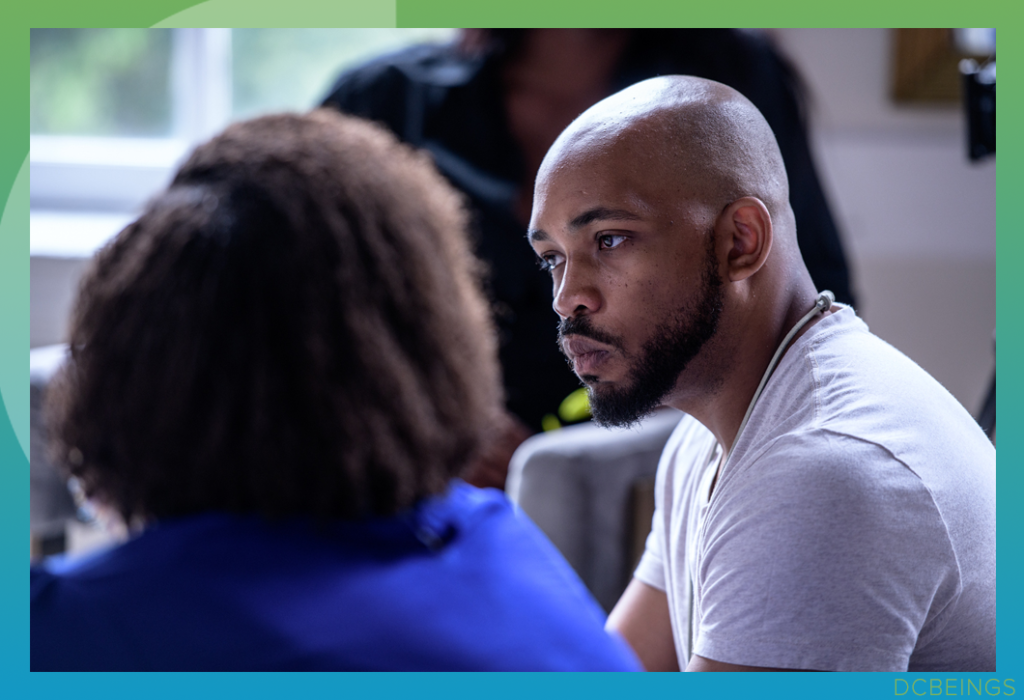
Dana: Ditto what you all have said. I always like to be very clear that I don’t necessarily consider myself to be an activist while I do advocacy work within the non-profit sector. I think so much of this work realize on people knowing their lanes. And sticking to that. So, for me, what I’m really passionate about is within the no profit sector; changing organizational cultures to better represent the people who are not at those tables and are dismissed or excluded. That’s what I have been pushing for at every organization that I worked at. Who’s not here? Why are they not here and what do we need to change internally to make this more of an open space; more of a collaborative effort, and to help organizations really work hand and hand with folks who are taking the streets and are shutting things down? And are demonstrating.Because I know we are not always empowered to do that with a 501-C3 status.
Preston: That’s all real. And I really particularly like the last one. Really shift the organizational culture. It reminds me of when we have conversations around your people. And everyone over 40 who are having these conversations. I’m like, I know this is a different idea of what millennial looks like, but this certainly isn’t it. And so I’m ready to have a conversation with young people by young people. Right? So, I really love that framing and I really love the idea of power. Really taking power and figuring out what you can actually do when you then hold the power. So, particularly for the folks who experience the most marginalization. The next thing we want to discuss, we’ve talked about Stonewall a bit very briefly. Stonewall has been white washed as many of us have known. You know, really taking away the work of folks like Marsha B. Johnson, Silvia Rivera, and few other folks; black and Latin X, trans folks. Trans women of color who really threw the first bottle against police to really fight the resistance of violence against LGBTQ folks. But, particularly against trans women. The question really is about thinking through corporatization of Pride. Thinking what Pride has looked like over the past couple of years. There has been some resistance from folks like Black Lives Matter, BYP, No Justice No Pride, among others. So, the question is, what is the role of Stonewall in today’s Pride, and how will you re imagine what it looks like in really capturing Stonewall’s true history?
Samantha: So this is something that I have spending a lot of time recently thinking about. One of my favorite books, don’t shade me, is Stone Butch Blues by Leslie Feinberg. And it is this beautiful telling. And I read it every year. And its this beautiful telling of…its through the lens of a white Jewish person. But, about butch/fem culture and queer culture. From the 1950’s to the 1980’s. It was published in 1990. So, there is this beautiful narrative about what it looked like to be queer, roughly in New York around the time of Stonewall that it kicks off. I think that in honoring Stonewall we also have to honor that Stonewall was the pinnacle decades of organizing. It wasn’t this moment where people got pissed off and popped off. It was literally the work that’s the Compton Cafeteria Riots, Dewey Lunch counter Sit-in. They were in a historical moment where there was only like this black organizing happening, there was gender justice organizing happening, sort of the second wave of feminism, there is a labor movement happening simultaneously. And folks have involved Silvia, Marsha, and other folks who kick-off Stone Wall. Who are feeling like, ” I have the right to be here” are sitting in the legacy of the simultaneous movement that are happening around them. Right? So, one we have to deconstruct that Stone Wall was not an isolated incident. It sits in a legacy and sits in a history. And also it was really based in people’s dignity. It wasn’t just that people were angry, it that people felt this inherent sense of dignity. That they had a right to exist without police repression, without oppression of saying you don’t belong or you can’t exist, or you have no right to be here. So, what does it mean in this moment for us to reclaim the inherent dignity of what it means to be black, brown, queer, and trans. And I think that there is something about it also being married to what we don’t talk about often as a reproductive justice, before that language existed of the moment of Stone Wall.
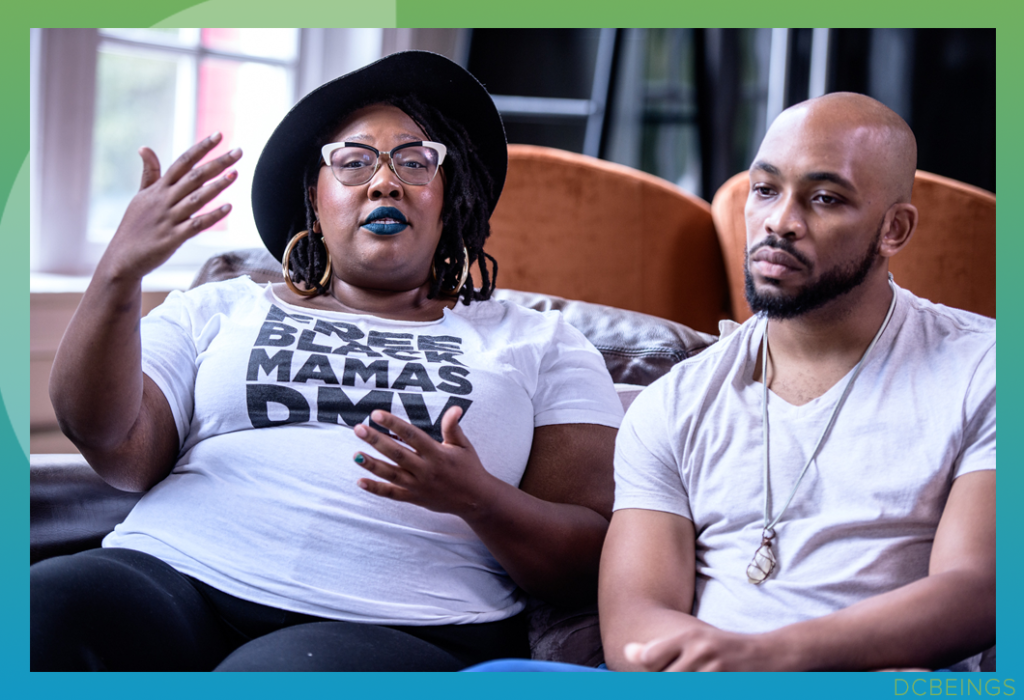
Samantha: So people organizing and feeling inherent dignity around their right to love and their right to have the type of sex that they wanted, the right to bodily autonomy and choices about their bodies, their right to not be killed by johns and to do sex work to support themselves. All of that shit was happening at the same time. So, I don’t think pride is something that can be corporatized, I don’t think that its something that should be corporatized and I think white gays have sold us down the river. Right now I am always curious about what could it mean to reclaim the legacy of both our dignity to exist in the world. Who is not at the table? Who are we not thinking about? Are we thinking about disabled people during our Pride marches? Are we thinking about undocumented people? Are we thinking about people who don’t speak English as a first language? Where is the inherent dignity for the vast breadth and depth of queer bodies and trans bodies that are part of our community?
Dana White: I think what we have observed over the past few years and this year in particular is a clear division between those folks who recognize pride as something much larger that this sort of corporate sponsored party and celebration. While do value celebration as queer and trans folks. I think that we deserve that in our lives. And I think that has to always a part of our movement towards equality and the liberation. There is this clear division between those of us who want to take back the true spirit and meaning of what Pride has meant and those who just want to party. And I think that the division really is based in privileged and access. I don’t really feel like celebrating if I’m underpaid, devalued, and criminalized, and unsafe. And that is not the case for a lot of our white queer and trans peers.
Alicia: And I even see that show up at Pride. So, I was at the Pride March just a week ago and had numerous instances of white folks touching me without consent or wanting to touch my body, or wanting to touch my hair. And there is this way in which folks feel like they access to black and brown queer and trans bodies that lives in a long legacy and context of white supremacy, violence, and sexual violence against black and brown queer/trans bodies. Even in our Pride spaces there is privileged, power, and whiteness just showing up all the time. And Samantha I just want to back to something you said. I’m so grateful for your framing and context of Stone Wall in the context of all of these other movements that were happening at the same time. And I’m really grad that you brought up bodily autonomy. Because, I feel like that is the place where the intersections of gender justice, reproductive justice, and anti-violence movements, and Stone Wall. They lived together and they live on our bodies. They live in our own experiences. As a survivor myself, I’m hyper aware of not only the ways that gender violence at both the interpersonal level and state show up. But, also in the ways that we don’t actually still have access to getting the support and the services that we need. But, we actually go seek help whether we’re engaged in sex working, go to the police for help or we are just trying to access main stream services. There’s a lot of places that we are still left out of conversations. Queer and trans folks are left out of narratives about abortion bands and there are all of these ways in which queer femmes are often left out of conversations about HIV and AIDS prevention. There are all these place where we can’t be our most authentic selves. It is not welcomed. So, I’m just grateful to you for lifting that out. Yeah, yeah.
Preston: I think this is the theme that I have definitely heard has been around. Body autonomy and literally what it means to have access and ownership of their own body. The one thing that we do always share is that we don’t have monolithic experiences. But, the one thing I always say is black folks we share many common experiences even if they don’t exist in a monolith. Because, even at Pride my family was visiting here and this white queer man came up to me and literally just almost attacked me. I’m sure he didn’t consider it an attack. My mom is more peaceful that I am. But, her energy came over me a little bit when it otherwise would not have. Also, because that’s still my mama and I can only do so many things around her. But, it reminded me of this idea that even in a space that is meant for celebration, allegedly there is still this idea that I am having restrictions on my body and actually that you have autonomy over my own body. And again, becoming that theme around reproductive justice especially, I finally met a couple of reproductive justice mothers a couple weeks ago. It was an honor.
Samantha: The OG’s.
Preston: The OG’s of the movement. Yes! But, working in reproductive health rights myself, and particularly with the lens of justice framing. Something that I always think about is really this narrative around queer and trans people not invited into the conversation around abortion access. And not included in the narrative and idea that is not a cis women’s issue and not a gestational or reproductive capacity issue. So, anyone can definitely comment on this but, Samantha I was really thinking about this around the abortion restrictions coming through Georgia, Alabama, Louisiana, Ohio, among other. But, around no conversations really for queer and trans folks both in policy reforms and narrative. Activist have definitely done a much better job about it. But, at the legislative level, certainly not. Did you really give us a framing around what reproductive justice is? What it means and really how queer and trans folks aren’t included in that particular movement?
Samantha: I can. And I want to say that I’m a student of reproductive justice. I sit at the feet of many brilliant queer black women who are literally leading this work. Folks like Latasha Mays, Monica Simpson, Dionne Haywood, Nia Martin Watson Robinson. Just the vast numbers of queer black women. I know I forgot some names, so don’t fight me.
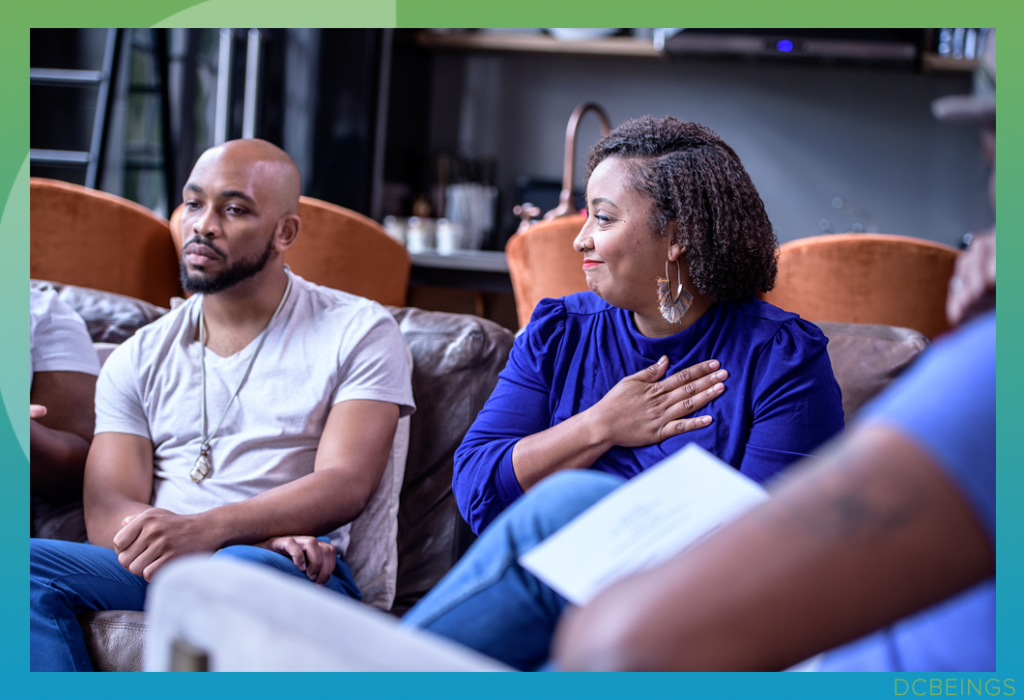
Alicia: I have a couple of names in my head.
Samantha: Thank you, Thank you. My understanding in reproductive justice is one, a framework created by black women to really deconstruct and to really blow up this idea of choice. What does it mean to have choice in a world where our bodies are harassed and killed by the state, by intimate partners, where we are forcibly deprived of the right to live with dignity through programs likes supplemental access to nutrition assistance, welfare, as its commonly called. What does it mean to have choice in a world where we are sexually abused or we are physically abused? Where we do not have full autonomy over our bodies because the state is consistently denying our humanity. And so not just the right to have a child, the right to parent the child or children you have, or to care for yourself or your family. But, also the right to live with…to make choices over your body. To have bodily autonomy, to have a dignified existence based in what you want to happen to your body and not based on what society tells you is possible or is available through legislative process.
So, this where I have to shout out the really dope work of folks like Renee Bracey Sherman at We Testify. Who has been doing a lot of beautiful, brilliant narrative intervention with abortion storytelling with queer and trans people. Shout out to the homie Kazimbe whose telling his story about seeking abortion access. And there are too few Renee’s in the world. And too many large white reproductive rights organizations really attempting to gain legislative favor by providing the most palatable narrative of abortion access possible and not the complicated histories of all the reasons people would choose. People need complete autonomy of their reproductive and gestational decision making. So, I am holding in this moment one is that so many of that out of the mamas we bailed out this year. We bailed out 15 mamas. The most we bailed out in history of Free Black Mamas DMV. Almost all of them are survivors of sexual violence. About 10 of them are biological mothers, almost all of them have chosen abortion at some point in their lives. Four of them are queer. There has been this… I don’t see them reflected I don’t see these brilliant, beautiful women that I know and am in community with. I think that that is an intentional decision. So I think that we need more queer and trans people to tell their stories. But, we also need spaces for ours stories to be heard, uplifted, honored, and really create this intervention around the way’s abortion is currently talked about.
Preston: Yes, I love all of that. And I really must uplift folks. Organizations and advocates for youth which really provide that space for young queer and trans folks of color to share their own stories around abortion access and by large restrictions depending on where they live too. Speaking of the narrative of restrictions too. Porsha, I’d really like for you to share your PrEP model. Its amazing. I know you talk about the work of PrEP and really what it means to you and really about services. PrEP has really been a strong intervention and been in the media about a couple of years. But, wasn’t just discovered just a couple of years ago. So, for you, what does PrEP mean to you and the work and what does it mean for sexual health?
Porsha: PrEP gives me an extra reassurance of what people would deem to be safe. You what I’m saying? Condom-less sex is not a bad thing. That’s how I got here. And I’m happy to be here.
Preston: Shout out. Shout out.
Porsha: So, it’s not a bad thing. But, sex is something that people are going to have. So, me having access to the PrEP pill being a trans woman, being a retired commercial sex worker, its an awesome thing. You do not know a person’s background. Where they’re coming from, their trials, their tribulations. And helping them just this one way can broaden so many other opportunities for themselves. So, me offering my voice, my look, or anything towards it… I’m with it. Especially, when it’s for my community. And there was one more thing that you said…
Preston: What is your experience around services, and whose often left out of the conversation of PrEP services? How are you seeing that narrative play out for you and your work?
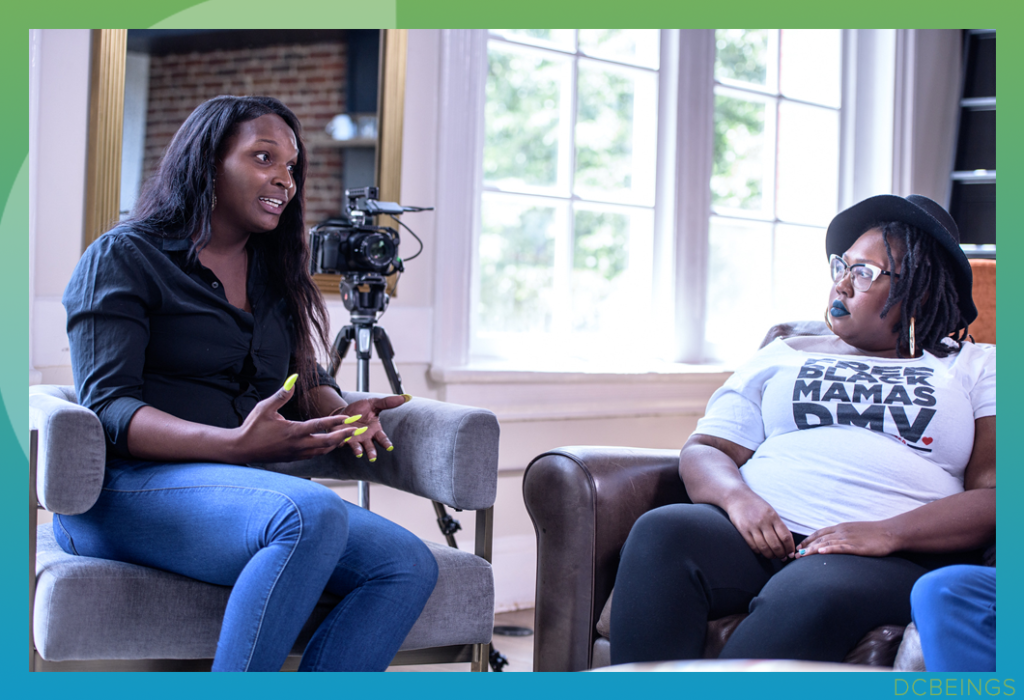
Porsha: I see cisgender black men left out of the conversation all the time. I feel like we need include them in every conversation regarding sexual health because if we are not including them, when what are we doing? African-American women right now are some of the highest carriers and they are not giving it to each other. So at the end of the day, we need to pull everyone in on the conversation. Pull everyone a seat up to the table in order to get a hold of things. And the barrier is we don’t have enough information about it. Its not like how you can go into the corner store and buy a condom. But, you can’t go into the corner store and just learn about stuff that you should just learn about. A lot of the times, warning labels and information is so small its often missed. So it would be great to find more things that are visible and we have to service the community the way the community sees it to be served. I can’t tell someone whose lifestyle I don’t live how they should be living it. The things that they need. So, that plays a big part.
Preston: And I hear a couple of things there too. Around engaging men and boys and ways that they can actually show up for folks who are more marginalized around ownership and autonomy over their own bodies. Without allowing that privilege to play out in those spaces as well. I think its been difficult. But, there are some organizations. Men Engaged Global Alliance is one that really engages men and boys fort gender justice issues worldwide. I do think we need to have some of those conversations without… as a cis man myself. I allow my own privilege to play out in those spaces. Because, I do come into this space with a lot more access than trans women for example than even black women, queer women. I think we’ve so those narratives play out in different ways. So I appreciate that conversation and really bringing that to light.
Preston: Alicia I would really like to talk to you a little bit about, we are fighting a lot of efforts in D.C. specifically around sex work decriminalization. Obviously we can talk all day about what sex decrim means and the public health benefits behind decriminalization.
Alicia: Lets!
Preston: That’s the energy I always need. So, what is sex work decriminalization mean to you? What is some of the work we’re doing in CAS and in sex work advocates coalition? What is it we can do to make sure sex workers are free?
Alicia: Yeah, so let me give some grounding. So the Sex Workers Advocate Coalition is a coalition of activist, sex workers, current and former sex workers, and allies who are working to make sure the sex workers have access, autonomy, choice, and a range of services and supports they need. Both to do their work but to also to just live safely in D.C. which is really hard, in general for queer and trans black folks. So that’s who is behind the scenes. Its made up of individuals, organizations, folks from private and public sector activist all of these different folks that come together over this to work on this legislation. Which is to decriminalize adult consensual sex work in Washington D.C. We really see that for CAS and for many our partners like BYP100, the justice of Pride. It’s a shout out to all the folks who are at the table and are leading this work, and are in this work that is driven by current and previous sex workers of colors. Our allies, we came together because we know a couple of things. One is that according to a study by the office of human rights in Washington D.C.
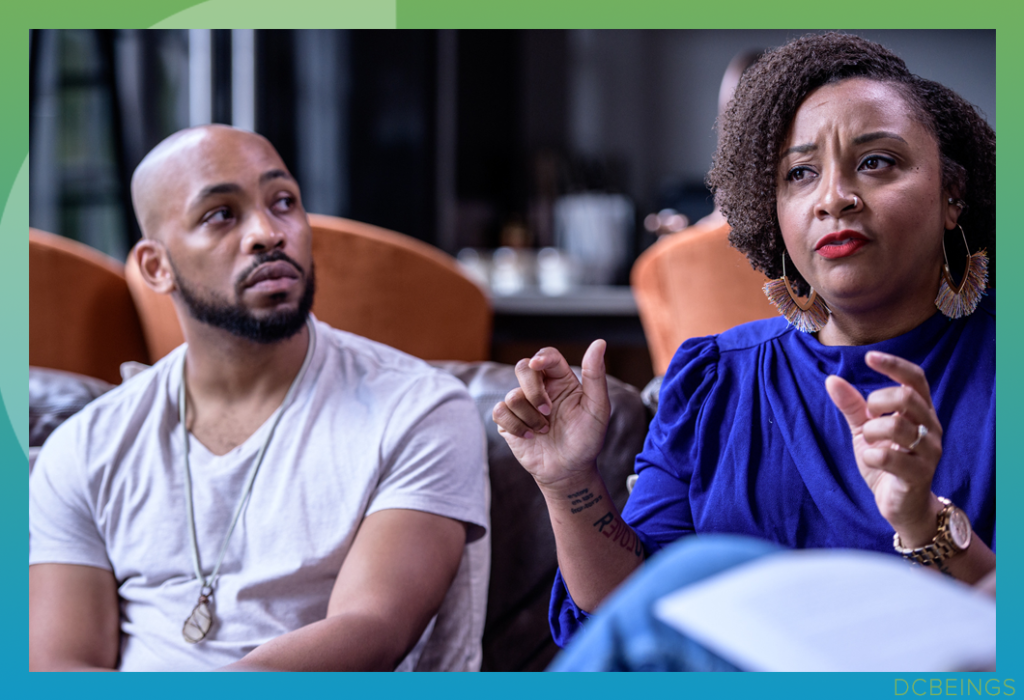
Alicia: According to D.C.’s office of Human Rights, 49% of employers would rather hire a less-qualified cisgender applicant than a more qualified trans person. So even in D.C. with the most liberal laws and the most protections for queer and trans people, we still see that there is a disparity in hiring for trans folks of color in particular. Almost 50% of trans folks of color are unemployed. So that’s some background. We also know that in D.C. and in other jurisdictions is that trans folks will be stopped by the police just for being trans. They are both racially and gender profiled. Just for existing in their bodies and having the audacity to be authentic, and having the audacity to walk up the street. So often its considered the intention to solicit for prostitution. So folks can be pulled over or stop and frisked. When we talk about stop and frisk, that’s not the image we see. But, know that sex work is a site where police harassment and police violence occurs, and the people that bear the burden of that are trans black/brown folks and non-binary black and brown folks. The other thing that I’ll say about that is we see sex work as an extension of all the other forms of gender justice. So folks choice, folks have autonomy. Sometimes, people are making choices out of not great choices. But, still it’s a choice none the less. With all of that information and that lens. We come to attempting in Washington D.C. to decriminalize adult consensual sex work. And instead to invest in policing sex workers, really invest in the things that sex workers say that they need. Like housing, access to health services. If I am engaged in street based sex work and cops can pull me over, open my purse, see condoms, and use that as evidence of my intention to sell sex. That’s not dangerous, its not good public health, its inhumane, it’s also police profiling. But, in addition to that we have to remove all barriers that make peoples work unsafe. Just like any other labor that people do.
So, with that we are investing in resources, in community based services, mental health services, and the things that sex workers need which is not more criminalization. What we also know about criminalization is that it makes it harder for folks if people want to leave, which is not everyone’s story or narrative. But, if people want to leave the sex trade, having a criminal record, having multiple arrest on your record is actually not a helpful way. Even in a city in D.C. that has banned the box, we know that it hard to operationalize those kinds of policies and we can ensure that there is consistency in every organization or job for those things. So we really see arrest in criminalization is making it harder for people to stay safe. We know that the police still keep us safe. We know that sex workers can be harmed, entrapped by police, sexually assaulted by the police. So we want to reduce the amount of violence that sex workers experience at the hands of the state, by decriminalizing their work.
Samantha: I just want to jump in on this. Because, I am always so disgusted by how few LGBT+ organizations have taken up the call to decriminalize sex work. Especially as we enter this 50th anniversary of Stonewall where we talk about the histories of Marsha, Silvia, the dykes, the trans women, and of the gay men who are a part of that revolutionary riot. They were often sex workers. What are we doing y’all?
Alicia: There is no conversation about bodily autonomy, consent, sexual pleasure. There’s no way to have those conversations without including sex work. There is no way to talk about gender justice without talking about sex work.
Preston: But, threads of all that. That we know with bodily autonomy is repro, is queer, is sex work driven.
Alicia: Absolutely.
Preston: All of those things are around bodily autonomy. So for not having those conversations with the folks who are the margins, then we are missing a huge opportunity. Even with, Samantha to see your point. Even with organizations in my experience, that have finally decided to say something, its only because places like D.C., New York, and other places are starting to really push the decriminalization bills.
Alicia: Absolutely.
Preston: So its more opportunistic than it is actually wanting to center the voices of the most marginalized.
Alicia: And we know that the folks on the inside of those organizations had to push really hard to get those organizations to really take the public stance to be in support of sex workers and their allies who have been doing this on the ground for years/decades literally in Washington D.C. So, I think that it is really important to lift up all the grass roots organizing that happens. It’s actually most in volunteer. Its sex worker led and also, acknowledge that these big LGBT organizations need to be paying trans and queer folks for our labor. They need to be paying us for our labor, storytelling and our experience in the work as we go forward.
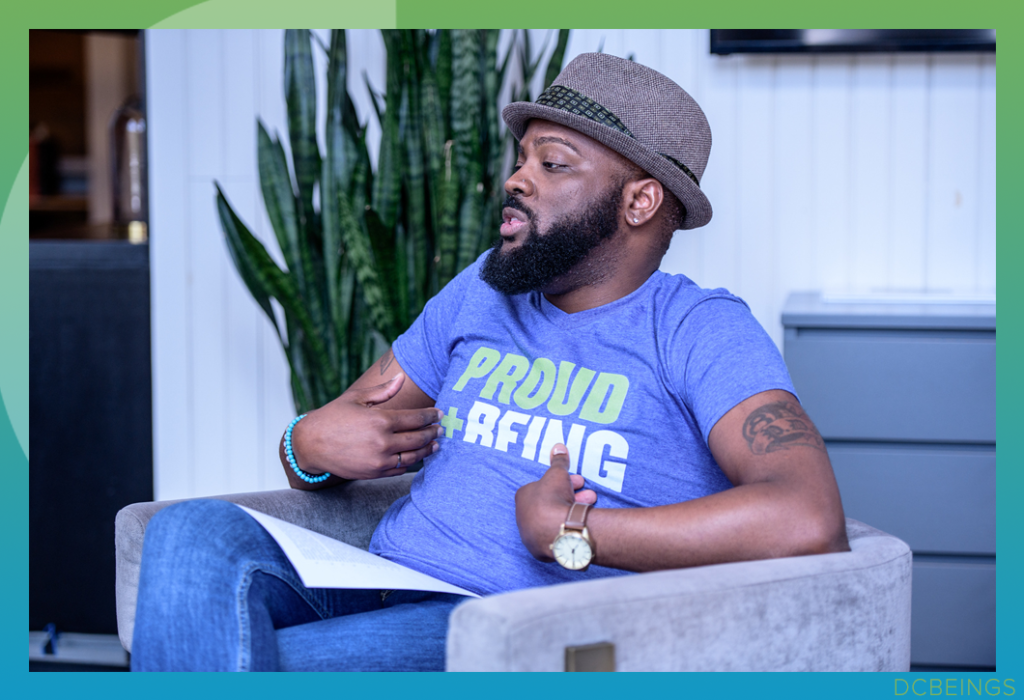
Preston: Now, that’s real. And Dana, its something you spoke to earlier was really this idea of what it looks like when your underpaid, or when labor is unvalued, or experience. So the one thing that we probably should talk about a bit more is always around is centering young people. So, to you what does it look like to center a young people, in particularly young people at the margins?
Dana White: I think it starts with understanding and excepting that young people, particularly LGBTQ young folks, under 25 and under 21 and under 18 are having sex. Their having sex. Their enjoying it. Their having a lot of it. And they should have the autonomy to do that. It’s about providing them with safer brave spaces to talk about those experiences, to access resources, and to get more information about how to do that in the most healthy way possible for them. The truth of the matter is, when we are talking about decriminalizing sex work or just sex workers in general plenty of the young people that I have worked with. Not just in D.C. but, in Charlotte and Boston have sex workers. It’s because they are often forced into circumstances that they shouldn’t be in. We know the rate of LGBTQ homelessness is super high nationwide. But, particularly in these major cities. So we are not adequately addressing that issue, but then criminalizing young people for being resilient and resourceful and doing what they need to do to survive.
So just by accepting realities about young peoples lives but, also giving them the access power to advocate for themselves and to make decisions about how they want services delivered to them. At Smile, what I have been pushing for is a youth advisory committee and making sure that the youth advisory committee is paid because that’s labor. And we often want young people to share their narratives and do labor for free or for exposure of experience. And that’s not really non-profit exploitation. So accepting realities of their experience but, also giving them access and power.
Alicia: Yeah.
Preston: Exploitation is definitely real. Even when it comes to the non-profit industrial complex. I think that’s something that should be raised. And we should pay folks for their labor always. So thank you for that. Alicia.
Alicia: I just wanted to jump in and piggy back Dana on something that you bought up. Which is this idea that sex work criminalization is harming people for the things they do to survive. When we look at disparities in housing and homelessness, and we look at disparities around employment when we look at things that we don’t think are related like school push out for kids of color. Those things impact queer and trans kids of color too. So all of those things create scaffolding for people’s choices. So, I think that is really important to name. And also even if we removed all the structural barriers for why people choose sex work, if everyone had access to housing some people would still do sex work. Because, its convenient, you are your own boss, because you like sex, and sex is enjoyable and pleasurable, because your good at it. That is an okay choice too. We have to de stigmatize this idea that sex work and sex is inherently bad. And connected in some way to morality both for adults, and especially for young folks.
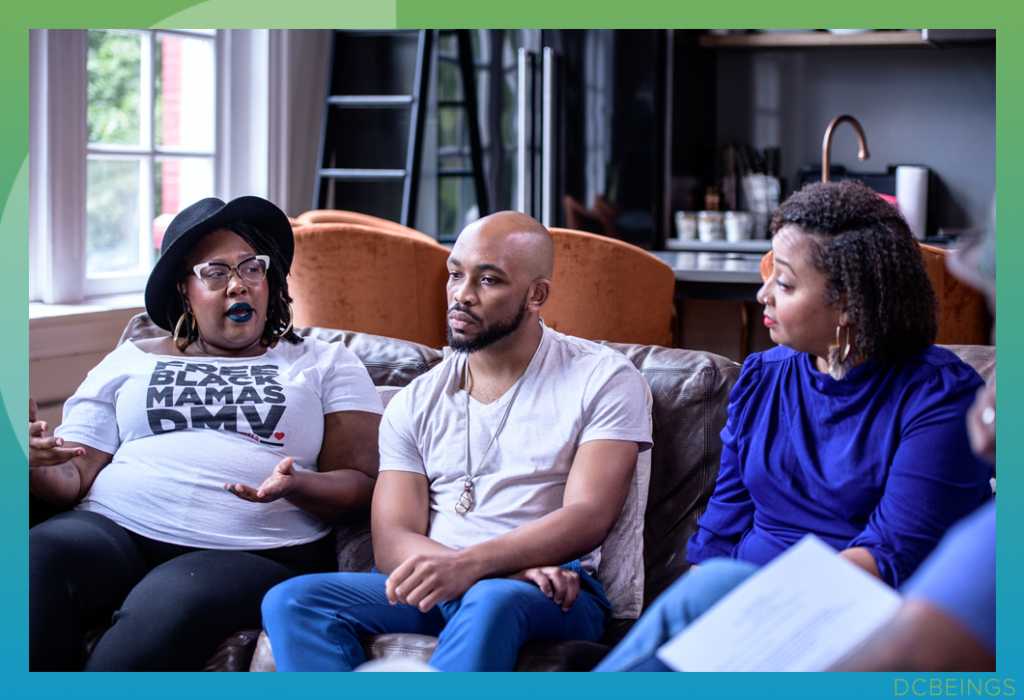
Samantha: And this is where I think the question you asked, Preston about the role of activism really makes me feel like its an exciting question. Because, I believe that all decisions are political and we don’t exist in an apolitical world. So young people being shamed, stigmatized, and ignored for the sex that their having or not being properly educated about safer sex practices is a direct result of education policies that disallows for consent based medically accurate sex education that is representative of the whole human experience. That is deeply connected to the shame and stigma built often by religious institutions and white supremacist puritanical values. Which is connected deeply to the way people show up in the world and the shaming, guilt, and stigma that they have. Which is connected to criminalization and carceral policy. So its not just destigmatizing sex work its literally these are inherently political conversations. We actually do have an opportunity to create more freedom for people, which is in the spirit of Stone Wall.
Preston: Yes. And that will lead to one of the final questions. Because, when we look at nationwide, these restrictions on abortions, the criminalization of bodies through sex work. All this is incidentally is connected to people’s fear of young people having sex. People having sex. Of queer and trans folks having sex. It’s also the very reason why many places do not allow for comprehensive sexuality education. Particularly sex education that is rooted in the experience of queer and trans folks as well.
So, I guess one of the final questions will be around sex positivity and destigmatizing sex. One of the reasons why I ultimately decided to be a DC Beings Ambassador is because a lot of it is rooted in sex positivity. And the sex positivity, its more than just this vernacular expression. It’s actually how you live out your experience every day. How do you actually frame questions? How do you actually have a conversation with people that’s connected with their experiences, around being sex positive?
So, one of the final questions again is around what does it meant to be sex positive for all of you? How do you destigmatize sex and what’s the importance of destigmatizing sex?
Porsha: I’m going to jump in. For me sex positivity is having good sex, having consensual sex, and not being apologetic about the sex that I am doing on my time. I’m not going to be apologetic about that. I think that everyone should…even though everyone doesn’t. But, everyone should have that mind frame. In true sex, you can not let other people police your bedroom. If you do, you will not be having good sex.
Preston: Or your kitchen, or your living room
Alicia: Or public spaces!
Preston: Right!
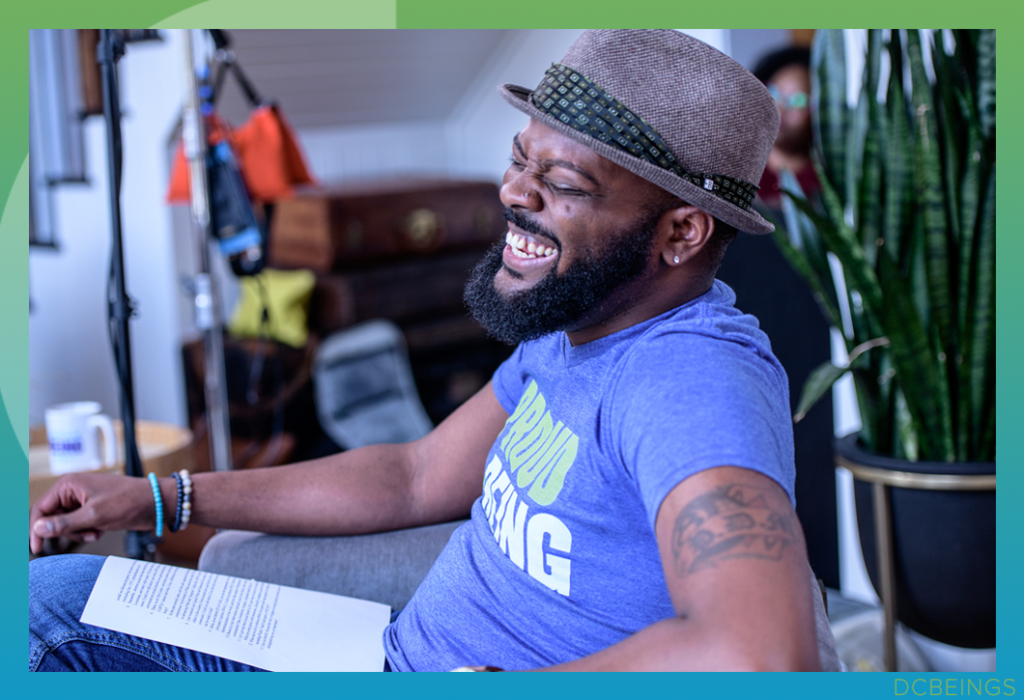
Porsha: I have a model. As long as its consensual, and its safe, and you are coherent. Have fun. And of age. But, have fun. Just dating back to what Dana said. Young people are having sex. I was 15, I had sex. I transitioned at 15 in high school. Yes, we were having sex. The only thing that… the gift that I would like to say that I got was that I was in a pregnancy prevention program at 8th grade. So, I got a lot of sex knowledge. So, going into it I didn’t feel uneducated about it. But, if you were to ask a 21 year old or, a 16 year old person. You don’t know that sex is. But, I have been learning about sex since the 8th grade. So, I think that we have to put a little bit more trust into the youth and listen to them, because they know what they want.
Alicia: Yeah.
Dana: I think also as we push for comprehensive queer and trans inclusive sex ed nationwide through public schools, but also with the help of non-profit organizations that we’re having those offerings in the community. I think that we have a responsibility as queer and trans adults to show up unapologetically as sexual beings. In an appropriate manner, of course. I don’t tell all my business to my youth, but I am very candid that I have lived a rich sexual life. I have gotten my life.
Samantha: Yes!
Dana: I am a former stripper, I am a former go-go dancer. I’m very candid about those experiences, so they can see me as a healthy, vibrant, autonomous, sexual being. Because, I think they need to see those examples.
Porsha: Just to piggyback. It doesn’t stop there. I was a sex worker, but I worked for the government, I’m a model. It doesn’t stop there. I think it is important that we share these stories because for some people they think this is where it stops. This is what I’m good at. This is all I can do. And for some people, its just the starter. You have get on your own, you have to live, get money, all that stuff. But, that’s not the end.
Preston: We do not live single issue lives.
Alicia: Absolutely.
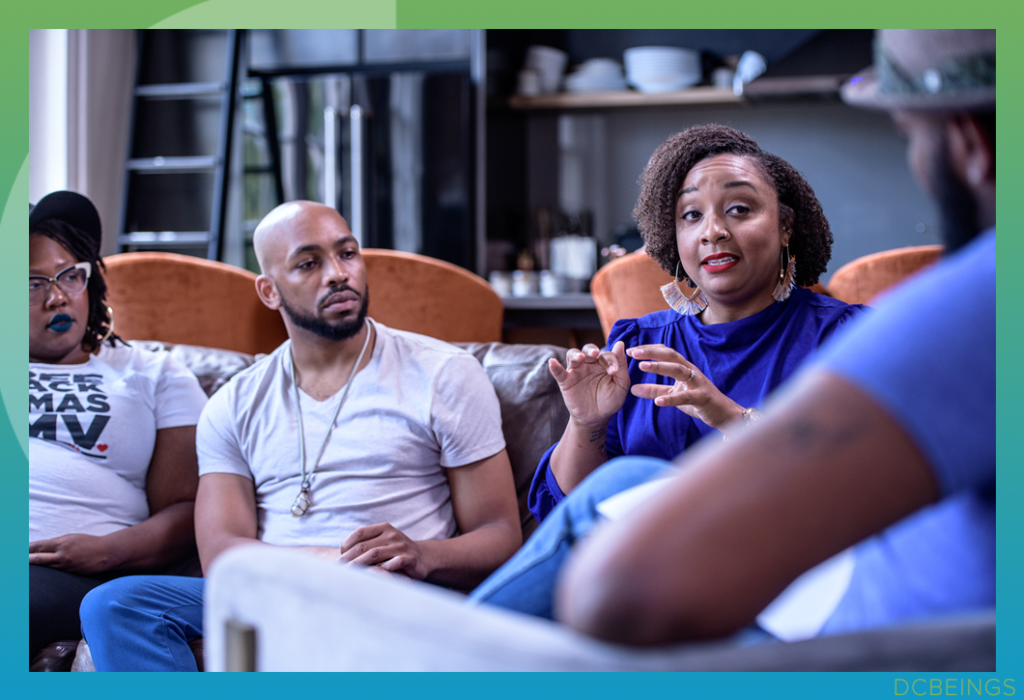
Samantha: I think, sex positivity, if I could sum it up into like five words it would be. Consensual, Communicative, Equitable, Enthusiastic, and Pleasure-based.
Alicia: Those are my new five favorite words.
Samantha: They are.
Dana White: For most things.
Porsha: For everything.
Alicia: Those are my five favorite words now.
Alicia: I need an infographic or something. Do you want to say more. I’m sorry gang. I’m just excited about those five words.
Samantha: I’m just going to put these on a graph thing.
Alicia: Express it to the group.
Preston: Especially around pleasure. I know many who have bad sex. And they do it because they feel they need to do it. What is this idea of pleasure mean within those amazing five words? What does the idea of pleasure-based sex mean to you?
Samantha: Yes, I think that when you get those other four. You get to a form of pleasure. Your sex is equitable, whenever its communicative, its, consensual, its enthusiastic. Those are the pillars of pleasure. Shout out to Asia Marie Brown, the pleasure activist. And what does it mean to live a pleasure filled life? Not just in the bedroom but, beyond. So I think of those as kind of the pillars of pleasure. My own personal pillars of pleasure. And I think that not only as queer, I think that we often talk about; us queer and trans people. Sex through a very narrow view. I am really interested in how do we talk about the changing sexual landscapes of ours lives. Desire and pleasure are landscapes their not just one solid location. And talking through or talking to each other about how those landscapes shift and change in ways that we can be a better relationship. More integrated with our bodies and our own desires. And what that does with the rest of our life. How freeing it is.
Alicia: Something that I am thinking a lot about is just this idea. We talked a little about policing our sexuality. I’m thinking about the legacy if policing at Stone Wall. The legacy of policing our sexuality and the ways that it continues to show up in harmful policies. What I constantly come back to in terms of sex positivity for myself, in addition to consensual and safety, whatever that looks like confined between the two, three, or four. However, many people are involved. And with that said, that point is like this idea that it is so radical to choose ourselves, our bodies, and our pleasure solely for our pleasure. Or getting our needs met. Whatever that means, is just so radical. And black folks and Black queer and trans folks in particular have been so… They have tried to take that away from us. They have tried to take joy, pleasure, and sensuality away from us. And to reclaim that for ourselves feels so powerful to be in a space for that.
The other thing that I think a lot about is like way that we police non-monogamous relationships, kink, BDSM, and I want to make space for all the ways even Asexuality. All the ways that sex shows up in ours lives just feel really present for me right now. And as a person who strongly identifies as poly and queer I think that sometimes we…queer folks in general have spent a lot time trying to prove that we are normal or just like the straights. I’m like no, but, that’s okay. We’re not.
Preston: Love is love.
Alicia: Yeah, I’m like no. That’s fine. Its a lifestyle. This thing is a lifestyle okay. In the sense that queer politic, queer, trans, and deep dyke politic is a resistance. It is intentionally not the same. That is the politic of it. That it is not the same and I just want to honor that. And another thing that Ill say too is that we also have to talk about trauma. I think. I don’t want to come from a place of trauma specifically. I just want to name that in our conversation about sex positivity we should making space for a survivors in those conversations. And commit needs and specific things that survivors need in conversations, and practicing sex safely. Whatever that looks like to us. Sometimes that may be code words. Sometimes when we say that we need condoms or other forms of protection. But, safety looks different for all of us. So just making sure to be communicative about those things feels really important.
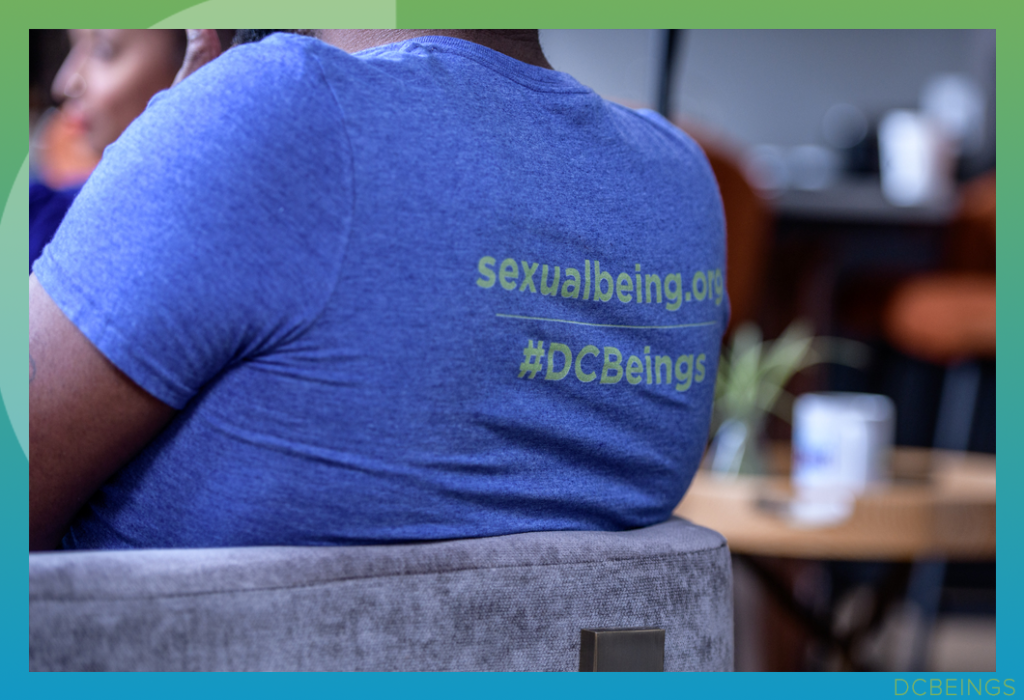
Preston: Well this has been such a rich conversation. We’ve talked about everything. We didn’t solve all the world problems.
Alicia: But, we’re getting there.
Preston: Yeah but it is an honor to sit in a space and really have conversations around pleasure, bodily autonomy, criminalization, policing, queer/trans folks of color, and what that all means so that we can all be free. We will wrap up the conversation but, before we do that I would like for you all to take like 30 seconds and really think about this state and reflect on the state of LGBTQ people of color and non-binary people of color. For you, what is the state of our community, and how can we do better in making sure that we are all free?
Porsha: I definitely feel like we are at a State of emergency. Trans women are being killed rapidly. No ones talking about it. No ones saying anything about it, or not doing enough. Homeless youth are popping up rapidly. Its a lot that we are not doing within our own community, and its a lot of organizations that are not doing what their supposed to be doing. They are getting these big bucks, this money.They are buying T’shirts. They are not doing the work. It looks cool then, but it is definitely showing up in the community. As you see we have more homeless youth. We have more women being killed. So, with all these organizations that are popping up, exactly what are you doing? And I don’t mean that in a disrespectful way. I mean it in an I just ask the question that no ones asking.
Alicia: This is not theoretical. This is deeply illicit experience. And I am so grateful for you asking the questions and naming it out loud. There is not enough happening, and I think that one of the other challenges that continues to happen is the mainstream LGBTQ community organizations are like Okay we got marriage, we’re out of here. See you. Good luck to the rest of you. And we’re saying we still need housing. We are saying that we still access to healthcare. We’re saying we still need to be ensure that we won’t be discriminated against in our job searches or fired for our identities. We are saying that need so much more, because in the words of Audrey Lorde, “We don’t lead single issue lives”. I think you also said that already –
Preston: Shout out Mother Audrey though.
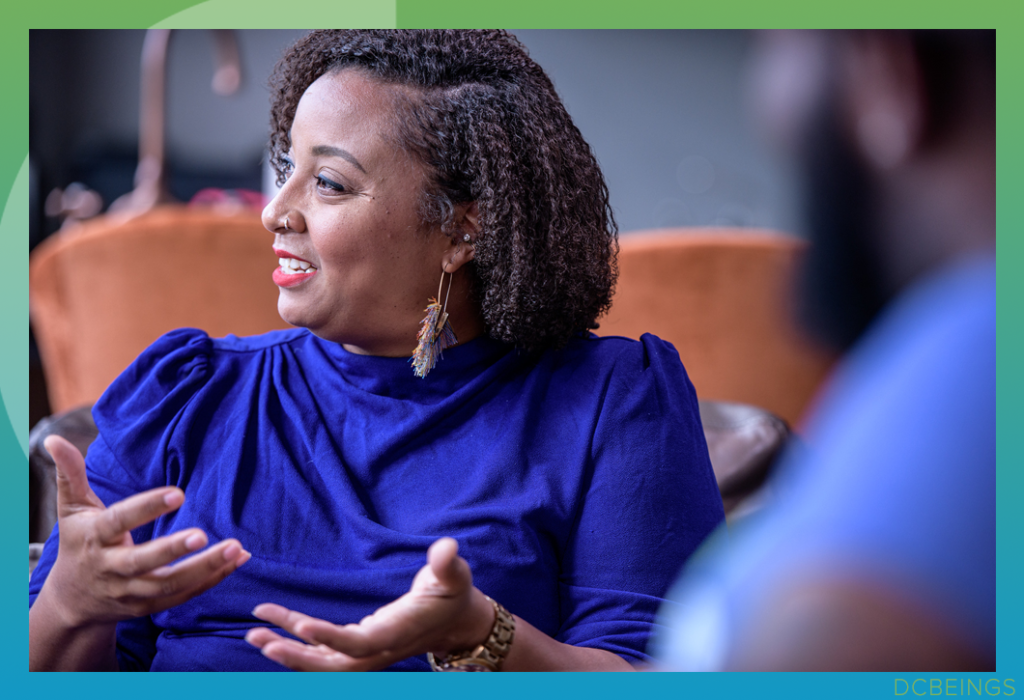
Alicia: – just bring it back. That this is we have to do our work, considering the folks at the margins of the margins. Because we know that when we support those folks that all of us actually win. That’s the way to get free is by centering the folks who are most left out of these conversations. And I just want to also name that I thinking deeply about Pulse. The Pulse Nightclub shooting. Just a few days ago. I’m thinking about Lillian Polanco, who was killed at Riker’s jail. And just thinking about the way the state continues to harm queer and trans people of color. Particularly black and latinex people. Thinking deeply about Pulse as also an Afro-Puerto Rican person. 50% of the people killed at Pulse were Puerto Rican, of Puerto Rican descent. So, our work has to be broad. Our work has to rely on each other for safety instead of relying on the state. I think that community based interventions and interventions led by the people most impacted is the only way forward. Its what we have already been doing but, it is the only way forward.
Dana: I would say in addition to censoring the folks who are marginalized even within the margins so that we can include youth, women, black women specifically, and it should go without saying black trans women. Philanthropics or models need to shift because what’s happened in the non-profit sector is that organizations are accountable to funders and their no longer accountable to communities. So, what does it look like. What do we need to explore so that money is being put to its best use.
Porsha: And we need to hold the organizations accountable. And hire the community that you want to serve. Because, far too often I see men hosting women’s groups, when it would so much more comfortable for a woman to host a woman’s group. No one knows more about women than women. Just like no one knows more about trans people than trans people. No one knows more about gay men than gay men. So, I fell like that we should all allow people to show up as their authentic self so we can learn from them and better serve them.
Samantha: I want to just bring in the names of some ancestors that are on my spirit right now. Edmonia Lewis, Pat Parker, Audrey Lorde, June Jordan. Some of our living legends like Tracy Africa, Ms. Major who is still here, Ms. Jonetta at TGIJP. The radical dykes doing the work like Charlene Carruthers, Mary Hooks, and Serena Seabring are some folks who are coming to mind and are on my spirit. Nath Taylor. We are in this critical moment, where we are both in crisis and at the edge of enormous possibility. And enormous, enormous imagination. And while we are surviving, and have survived, seemingly insurmountable, unfathomable forms of violence.
Samantha: I think that the beauty of who we are is our commitment to living and loving in the face of unimaginable oppression. And that is our legacy. And that is the legacy that I think we get to get grounded in. In order to create the world that we want to see with each other and for our children’s children, children’s children. So, I am grateful for you Preston for holding this space. For the brilliance of the panel and I hope that we can continue to be on the cutting edge of innovating a freer life. That Silvia and Marsha and those who threw the first bottle couldn’t even imagined.
Preston: This conversation has been…I feel like there should be a collection plate somewhere I missing. Exactly, because at least our money would go to community. So, yes yes yes. Porsha, Samantha, Dana, and Alicia thank you so much for sharing this space with me. I must always share about being a proud being and being a DC Beings ambassador and really the work we have to do. This conversation has been great and I really just want to honor you for taking the time. For using your energy and your space for this very thing that we’re discussing. So, thank you all so much and let’s get free.
All: Let’s get free.
Preston: All right y’all.
View the whole panel below:
Interested in what I had to say? Follow me across social media on Twitter and Instagram and let’s keep this conversation going strong!


